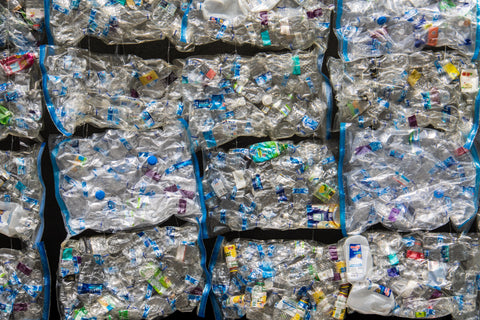A feature wall can instantly make a living room feel more intentional, adding depth and character without a full renovation. The key is choosing the right surface (often the wall behind the sofa, fireplace, or TV), then matching colour, texture, and lighting to the way you actually use the space. Deep blues, greens, and charcoals create a cosy, evening-friendly mood, while warmer terracottas and ochres bring energy for social rooms. If paint feels too simple, wallpaper, slatted panelling, or subtle texture can deliver impact without overwhelming the rest of your décor. Keep sight lines in mind, avoid walls broken up by doors and windows, and test samples across morning, afternoon, and lamp light before committing. At Friendly Turtle EcoBlog, we love home updates that look great and last: thoughtful choices, quality finishes, and flexible styling that won’t date after one season.
Share your articles with us and get published! Reach out at hello@friendlyturtle.com.
Help Your Sustainability Goals With These Overlooked Tips

Living sustainably is a difficult task these days. Everything we do requires reliance on fossil fuels and products that cause environmental damage. Luckily, there is a growing consciousness about these issues.
While the large swings in establishing a sustainable lifestyle are super-necessary, a few little changes can have a surprisingly effective impact on your sustainability. My favourite tips are the kind that provide you with small changes that can stack up, so this list has been compiled in that same spirit.
Your Windows May be Raising Heating Costs
Windows are something many of us rarely consider in our daily lives. Moreover, we often underestimate the impact they have on our home heating. They are, in fact, an essential part of the ventilation process and they can help save a lot of money on heating bills while decreasing the strain on your energy usage.
The most sustainable option is using timber windows which can last your entire lifetime if maintained properly. They also have excellent durability and thermal insulation allowing you to save on heating bills and decrease energy consumption. Aside from that, they are also endlessly recyclable if you ever feel the need to swap them out.
Even aside from the material your windows are made from, an extra layer of insulation can be a great energy saver if you live in a colder region. Most windows these days are double-glazed but triple-glazing can improve your energy saving and window durability.
If you’re looking for a cheaper option, secondary glazing can be more affordable. While not as effective as double glazing, it still offers a decent option for you. Find out how much new windows cost to see if it’s a solution that works for you.
Proper Food Storage Prevents Excess Buying
Food waste is a major sustainability problem. Keep in mind that annual food waste in the UK was last estimated at 6.6 million tonnes, so even seemingly small measures like proper storage, using containers, sealing, or arranging items on shelves thoughtfully can make a big difference. Let me explain.
Firstly, if you want to reduce food expiry in your household, you may just be storing your food wrong. This can help you shop less and put less of a strain on your local shopping. It's possible that you're inadvertently storing certain foods (ones that don’t belong next to each other) together. This is especially applicable to food items that emit ethylene, a gas produced by certain fruits and vegetables as they ripen.
A few key examples include placing apples with avocados, bananas with mangoes, tomatoes with cucumbers, potatoes with onions, or broccoli with peppers. These combinations can lead to premature spoilage in your refrigerator. Be sure to check which fruits emit ethylene and
Another effective method for long-term preservation is freezing or transforming items into herbs or sauces. While this may be common knowledge to many (especially those with overbearing mothers), it serves as a valuable reminder. Foods that are circling the drain can be converted into sauces and stored in ice cube trays or pickled for extended preservation, potentially saving you money on condiments as well.

Cheaper, Sustainable Food Sourcing
So maybe your food sustainability issues aren’t just confined to the fridge and you need to get to the source of the sustainability issue. Shopping is where it starts, especially when supermarkets are the main contributors to food waste. Still, even here you can do more while also cutting down on your costs.
Shopping services like Misfits or Wonky Veg Boxes specialise in collecting perfectly nutritious greens and reselling them far cheaper. These are often foods that taste perfectly fine but were discarded for being misshapen (sometimes slightly bruised, sometimes just not in an ideal physical shape for the supermarket). The kind of food waste that occurs from stores throwing away mildly misshapen but perfectly edible items is your gain.
Even aside from the actual fruits and vegetables, there are ways to get more out of what you buy. You can use the peels and repurpose them into soups and stocks. Ordinarily, people throw these out without knowing their potential, so it can be handy to look up what you could do with them.
Small Reusables Are Must-Have
Reusability is often more effective than recycling. Recycled goods end up in a landfill anyway (for most countries) or rely on deforestation for paper goods, so it’s best to have as few throwaway goods as possible. So, I’m sure you’re doing the usual and a lot of the basics are not news to you.
You’re probably on a steep regiment of reusable shopping bags and upcycled goods. That’s great. But my mission statement here is to talk about the overlooked yet small changes that count (and if possible, keep the standard of living of the reader the same or improve it).
Something as simple as paper towels is something you may not really need. A decent washcloth is far better as it has a massive lifespan and can just be tossed in with your laundry at minimal extra cost. Are you wiping surfaces with paper towels every time? It can be far more inconvenient to keep buying new ones. Cycling through a few reusable rags and dishcloths is far better both for your wallet and your sustainability goals.
Another simple example is keeping your own reusable water bottle with you rather than opting for buying plastic water bottles. According to the United Nations University Institute for Water, the world produces 600 billion plastic water and/or soft drink bottles a year. There’s no need for it to be almost 100 times the human population.
In a similar vein, opt for lids instead of cling wrap or other single-use plastic containers. A food container box (to avoid microplastics) can be a great way to store food more effectively and keep your waste to a minimum. It’s also more effective to carry with you on a picnic or hike than a flimsy film of plastic.
A quality over quantity approach takes a bit of adapting but it's ultimately more beneficial for you and the planet.

Repurpose Old Clothes
You got some jeans that are worn out from the ankles? Why waste 90% of the excellent material when you could cut it into summer shorts? Or alternatively, invest in some sowing equipment to get the most out of everything.
I use old shirts as rags for wiping the floor, for example. Clothe waste is a consequence of fast fashion and the way we think about disability in general. Altering the way we see used or damaged products can be a great way to curb this area of unnecessary waste and save on needless spending.
Reuse Cooking Oil
On a basic level, oil waste is often unnecessary. Sure if you’ve got it discoloured and smelly, it may not be healthy. However, a while ago, I realised I was wasting a lot of it while frying my eggs. Now, I keep a glass container for reusing it and it has been a great way to minimise constant oil consumption.
Even aside from cooking, people have been repurposing their cooking oil as biodiesel or animal feed. Even though they may not be for everyone (not everybody can afford a biodiesel boiler), these uses are things we rarely think about.
There are companies and even apps that are based around locating places where you can donate used cooking oil, which is an ingredient in soaps, cleaning materials, and so much more. Be sure to keep the oil around if you’re worried about overuse. Your trash could be someone else’s treasure.
Hopefully, this little resource has been handy in giving you some new ways to live sustainably. While the little things aren’t everything, they can certainly help us on our way to a more eco-conscious way of living.
0 comments
Let customers speak for us
Blog posts
Good oral health starts long before the first wobbly tooth. When children learn simple routines early, they’re far more likely to avoid cavities, gum irritation and the stress of emergency appointments later on. Begin with regular dental check-ups so small issues are spotted quickly and visits feel normal, not scary. At home, let your child choose a toothbrush they actually like, then guide them through gentle circular brushing for two minutes, twice a day. Add flossing as soon as teeth touch, and keep it upbeat with a short story or a timer song. For a more planet-friendly routine, pick durable brushes (or responsibly sourced bamboo), turn off the tap while brushing, and choose refillable or recyclable packaging where possible. Friendly Turtle EcoBlog shares practical, low-waste lifestyle ideas like these, helping families build habits that protect little smiles while treading lighter on the Earth.
Preventive care is one of the kindest, most sustainable choices you can make for your pet. Many health problems start quietly: a little plaque, a mild itch from parasites, a gradual dip in energy, or stiffness that only shows up after rest. Left alone, these “small” issues can build into painful dental disease, weight-related strain on joints, or conditions that affect the heart, lungs, liver, or kidneys. In this Friendly Turtle EcoBlog guide, we share practical habits that protect pets over time, from parasite control and lifestyle-led vaccinations to age-appropriate nutrition, daily movement, and simple grooming checks that spot changes early. Consistent routines also matter more than most owners realise, helping you notice subtle shifts before they become expensive emergencies. The goal is not perfection, but steady, evidence-led care that keeps your companion comfortable, active, and thriving for longer.



